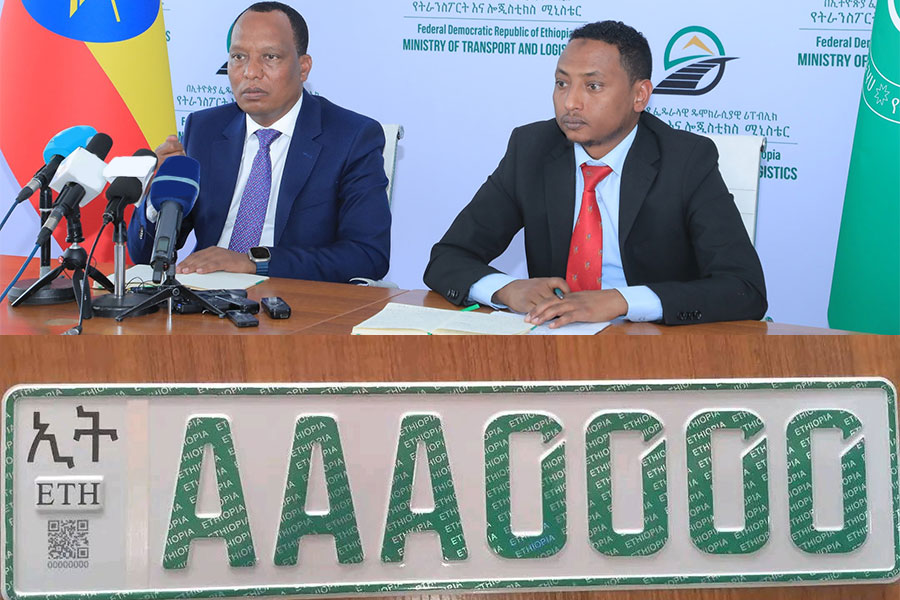
Aug 26 , 2023
By Justina Nixon-Saintil
Climate change is undoubtedly the defining challenge of our time, but its effects are not equally distributed. In developed and developing countries, environmental degradation disproportionately affects marginalised communities because of race, ethnicity, religion, and poverty. More often than not, these communities are already confronting systemic inequalities such as water scarcity, and greater exposure to pollution and extreme weather events – all of which are exacerbated by the climate crisis.
It is a reality with which I am intimately familiar.
As a child, my family had a farm in Dominica, a small Caribbean island state that faces the threat of hurricanes each year. One tropical storm could knock out power grids and wipe out entire harvests, destroying local livelihoods.
According to the World Bank, climate-related disasters annually push 26 million people into poverty. And because the world's poorest people often depend on agriculture – a sector highly dependent on favourable weather conditions – to support themselves, they urgently need access to technical, financial, and institutional resources to prepare for and respond to more frequent and intense extreme weather events. Given its capacity to innovate climate solutions, the technology sector could provide the tools we need to understand, mitigate, and even reverse the damaging effects of global warming.
Addressing longstanding environmental injustices requires these companies to put the newest and most effective technologies into the hands of those on the front lines of the climate crisis.
In particular, tools that harness the power of artificial intelligence (AI) could offer unprecedented access to accurate information and prediction, enabling communities to learn from and adapt to climate challenges in real-time. The IBM Sustainability Accelerator, launched in 2022, is at the forefront of this effort, supporting the development and scaling of projects such as the Deltares Aquality App, an AI-powered tool that helps farmers assess and improve water quality. As a result, farmers can grow crops sustainably, prevent runoff pollution, and protect biodiversity.
Consider also the challenges that smallholder farmers face, such as rising costs, the difficulty of competing with larger producers with better tools and technology, and, of course, the devastating effects of climate change on biodiversity and weather patterns. Accurate information, especially about soil conditions and water availability, can help them address these issues but has historically been hard to obtain.
One could imagine regional officials in a developing country deploying a machine learning algorithm to forecast future population growth and corresponding changes in energy demand using temporal and spatial data. With this forecasting model, policymakers could optimize the country's energy network, redirecting supply to where it will be most needed. That is also something that we are supporting today.
Developing AI-powered mobile apps and virtual assistants, and making them widely available, promotes equitable access to data and technical insights. With highly accurate weather forecasting, advanced agronomy techniques, carbon footprint calculations, and other predictions generated by AI, smallholder farmers can build greater climate resilience and boost production and income by adapting to changing conditions more quickly and managing crops more sustainably.
At the same time, simply handing over these tools to disadvantaged communities will not solve the problem – apps alone are not an antidote to climate injustice.
To implement AI-based technology successfully, tech companies must be willing to share knowledge with users, including instructions on how to take measurements that will yield data. They must build in the ability for users to collaborate independently and solicit feedback from farmers and other users. An AI chatbot that automates question-and-answer exchanges could help minimise user-training challenges while democratising access to information. As companies develop AI solutions, we also need to support local tech firms and app developers, as they are best positioned to put these tools to use.
Beyond increasing access to new AI-powered tools, the tech community and NGOs, governments, and international agencies can help build an equitable, resilient future for disenfranchised communities by providing training in the technical skills and knowledge required for green jobs. As the transition to a low-carbon global economy accelerates, demand for "green skills" is projected to outstrip supply. Preparing workers for the jobs of the future, in combination with the widespread adoption of new technologies, will strengthen climate resilience, especially in developing economies.
All of us – individuals, corporations, organisations, and governments – share the responsibility to address growing environmental threats. Tech firms, in particular, must channel more resources to combat global warming. That means investing in developing and implementing AI tools and ensuring that those in the greatest need can access them. Finding climate solutions – and achieving environmental justice – depends on the private sector mobilising its expertise for the greater good.
This article is provided by Project Syndicate (PS).
PUBLISHED ON
Aug 26,2023 [ VOL
24 , NO
1217]


Editorial | Oct 03,2020

Commentaries | Mar 23,2024

Commentaries | Jun 10,2023

Commentaries | Dec 05,2018

Sunday with Eden | Nov 30,2019

Life Matters | Sep 08,2024

Editorial | Feb 01,2019

View From Arada | Aug 23,2025

Viewpoints | Dec 30,2023

Commentaries | Jan 16,2021

Photo Gallery | 171468 Views | May 06,2019

Photo Gallery | 161711 Views | Apr 26,2019

Photo Gallery | 151436 Views | Oct 06,2021

My Opinion | 136296 Views | Aug 14,2021





Dec 22 , 2024 . By TIZITA SHEWAFERAW
Charged with transforming colossal state-owned enterprises into modern and competitiv...

Aug 18 , 2024 . By AKSAH ITALO
Although predictable Yonas Zerihun's job in the ride-hailing service is not immune to...

Jul 28 , 2024 . By TIZITA SHEWAFERAW
Unhabitual, perhaps too many, Samuel Gebreyohannes, 38, used to occasionally enjoy a couple of beers at breakfast. However, he recently swit...

Jul 13 , 2024 . By AKSAH ITALO
Investors who rely on tractors, trucks, and field vehicles for commuting, transporting commodities, and f...

Oct 4 , 2025
Eyob Tekalegn (PhD) had been in the Governor's chair for only weeks when, on Septembe...

Sep 27 , 2025
Four years into an experiment with “shock therapy” in education, the national moo...

Sep 20 , 2025
Getachew Reda's return to the national stage was always going to stir attention. Once...

Sep 13 , 2025
At its launch in Nairobi two years ago, the Africa Climate Summit was billed as the f...

Oct 5 , 2025 . By NAHOM AYELE
In Meqelle, a name long associated with industrial grit and regional pride is undergo...

Oct 5 , 2025 . By BEZAWIT HULUAGER
The federal government is set to roll out a new "motor vehicle circulation tax" in th...

Oct 5 , 2025 . By NAHOM AYELE
The Bank of Abyssinia is wrestling with the loss of a prime plot of land once leased...

Oct 5 , 2025 . By BEZAWIT HULUAGER
The Customs Commission has introduced new tariffs on a wide range of imported goods i...